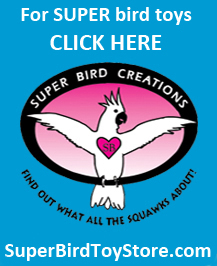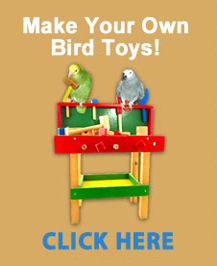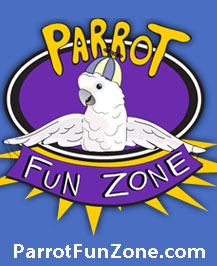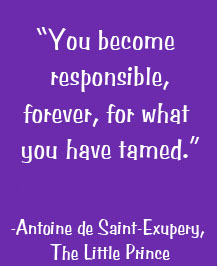 OK, so we've made the resolution to feed our feathered friends a well rounded, nutritional diet. What else do we have to worry about?
OK, so we've made the resolution to feed our feathered friends a well rounded, nutritional diet. What else do we have to worry about?
Toxins are Lurking!
- Fresh fruits and vegetables need to be washed before feeding them to your parrot to remove bacteria as well as pesticide and fungicide residues.
- All food must be checked for mold and fungal growth and discarded as necessary. Mold and fungi can be toxic to your bird!
- Food should be stored in appropriate containers at the appropriate temperature.
- Fresh foods should be removed from your bird's cage after no longer than 2 hours due to spoilage and bacterial growth.
- Use separate bowls for dry vs. wet foods.
- Keeping food and water dishes away from each other will assist in discouraging your parrot from dipping its food into the water dish.
- Dishes must be sanitized daily by scrubbing them out with hot, soapy water. This should be supplemented by a disinfecting soak 2-3 times a week.
- Fresh water must be available at all times. Birds require fresh water at least once a day and sometimes several times a day in a clean dish. Consider using a water bottle to avoid contamination.
- If you are serving hot foods make sure that they are sufficiently cooled to avoid crop burn.
Poisonous/Dangerous Foods
Just as there are foods we should avoid as humans, there are foods that are potentially toxic to your birds.
- Avocado
- Chocolate
- Carbonated beverages
- Alcohol
- Caffeinated beverages
- Seeds and pits from fruits (apple seeds contain cyanide)
- mushrooms (many species are potentially toxic)
- onions (can destroy red blood cells)
- commercially grown strawberries (extremely high pesticide residues)
- tomato leaves
- uncooked beans
- uncooked eggs
In general, other foods that should be avoided include:
- salty foods
- refined sugars
- fatty foods
- dairy products (not easily digested)
Please note that the above is not a complete list of potentially toxic items. If in doubt, consult with your avian veterinarian.



















































































































































Comments powered by CComment